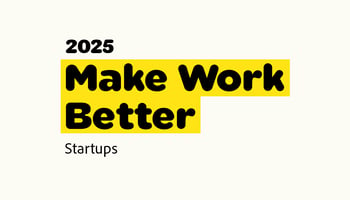How can we foster a strong culture of positivity and collaboration in an asynchronous environment?...
The Impact of Company Culture on Startup Success

Your business has a personality. Each unique trait decides how efficiently it operates and how it arrives at decisions. It determines how transparent interactions are and what happens when there’s a setback. It even influences how employees feel when they wake up for work.
This is company culture. I founded HeyTaco more than eight years ago, designing a product that enhances company culture. As my startup grew to include a team, I had to define our values and foster a culture there, too.
Startup culture in particular is exciting because founders have a golden opportunity to invent it themselves, from the ground up. Today, I’m sharing more about the benefits of startup culture and how company culture shapes employee motivation.
How is startup culture different from corporate culture?
Many startup founders have a corporate background. The corporate experience is often focused on a hierarchy. It’s a common expectation that we minimize risk and keep its existing foundation solid.
If you aren’t willing to alter this mindset moving forward, it can heavily impact your new company culture. Startup culture has strong values too, but also vision.
Team members have the opportunity to flex their creativity and realize their best out-of-the-box ideas. They can be a part of taking measured risks that help change the industry.
It’s so effective that many corporations end up adopting a version of startup culture when they hit a plateau. A more free-thinking workplace culture drives innovation, a logical strategy for catching up to the competition.
The importance of workplace culture at startups
The difference between startup culture and corporate culture illustrates how each benefits a business. At startups, success comes from how our culture nurtures and empowers people in the workplace.
Startup culture already attracts the right people
Adaptable, collaborative, and creative. Startups are notorious for drawing in growth-oriented individuals.
From there, infuse the culture with values that align with the company’s mission. HeyTaco was founded to help create supportive workplaces where everyone’s efforts are seen and appreciated. Our own team reflects that.
How company culture shapes employee motivation
Startup culture gives participants a platform for their ideas. They feel they have a genuine stake in the company’s success, working with instead of just for. This is a key attribute driving motivation and productivity.
Plus, experiencing breakthroughs and setbacks together keeps people invested in their roles. The dynamic nature of startup culture means team members feel more excited about what they can achieve together next.
Retaining the best talent
HeyTaco is all about recognizing one another’s contributions. This naturally blooms into a sense of belonging.
It’s a mission we spread far and wide not only because everyone deserves to feel supported, but because this is how growth happens. Good companies want to invest in the skill development and well-being of their team.
Employees need to feel fulfilled enough to stick around for that.
The biggest company culture mistakes startups make
We can’t discuss the impact of company culture on startup success without mentioning what can go wrong. If you’ve experienced trouble solidifying the culture that best suits your business, you may have made one or more of these missteps:
1. Overhiring or hiring your friends
You need a team you can trust, people who understand you. However, personal relationships can sometimes be difficult to carry over into your new business, so proceed with care.
It’s also not unusual to assemble too many people at once. This can be costly and confusing. HeyTaco gradually built itself up to a small yet robust team, minimizing growing pains.
2. Prioritizing the hustle
Hustle is essential to launching a startup, but you have to ease up before you and the team are headed toward burnout. Burnout is the leading cause of declining employee engagement.
Most of us can agree that productivity for the sake of productivity doesn’t always produce the best-quality work.
3. Letting toxic behaviors slide
Management and founders can struggle with addressing every single negative behavior they catch wind of. However, we must uphold our defined expectations. People who are great at their jobs still need an occasional redirect back to company values.
4. Offering too many incentives
Every startup wants the best people for the job, and many use perks to seal the deal. The trouble arises when you throw in too many amenities. A few perks are great, but an ethical, flexible, supportive company culture is even better.
5. Thinking culture is “set it and forget it”
You wouldn’t create one marketing strategy and let it sit, never analyzing or adjusting it. The same goes for startup culture.
Building culture in a startup
Founders learning how to build a culture at their startup are ultimately deciding who they’ll hire. We already know startups attract great candidates.
Defining the culture first will narrow it down to the best possible fit, keeping company growth and employee retention rates up.
Start from the beginning
Putting a word or two to your values isn’t enough. For example, you say you’d like to encourage an inclusive company culture. How does that manifest in each process your startup carries out?
There’s a lot to go over, but for starters, answer some of the following questions. Your answers will inspire further, more specific questions.
- How will the company be organized?
- What is the company’s mission?
- How transparent will you be in making decisions?
- How should the team communicate and collaborate?
- What growth opportunities will the team have?
- How should you reward or correct employees?
- What’s the protocol for handling conflict?
- What defines success for you?
Leading by example
As a founder, CEO, or COO, your behavior is the single most important factor in reinforcing company culture. You can only hype up collaboration so much when you’re making every decision behind a curtain.
This isn’t just about being as kind as you’d like the team to be. If you don’t maintain a healthy work/life balance, your employees might feel pressure to stay late, too. If you freeze or falter when a challenge crops up, they may not be as inclined to go straight into solution-seeking mode, either.
Maintain and evolve as your startup grows
Once you’re comfortable walking the walk of your custom startup culture, understand that you have to keep going, changing the pace when necessary.
Communicating expectations clearly at the beginning is a given. As your startup takes off, be sure to update everyone on any new expectations or reorganizing efforts. For example, some roles may need to become more focused, reducing the degree of collaboration some people were used to.
And if the team grows in numbers, your culture is evolving. Have an idea of how you’ll integrate and accommodate new people with varied backgrounds and levels of experience.
Start up culture with HeyTaco
Startup culture sounds more enjoyable and liberating than other workplace cultures. In many cases, it truly is, but not because the leader loosens the reins or has low expectations. It’s because they committed to a mission and its core values first.
If you want to create a company culture that retains and motivates employees, make sure to celebrate the small wins. HeyTaco makes recognition fun and meaningful, and it’s free to try.






